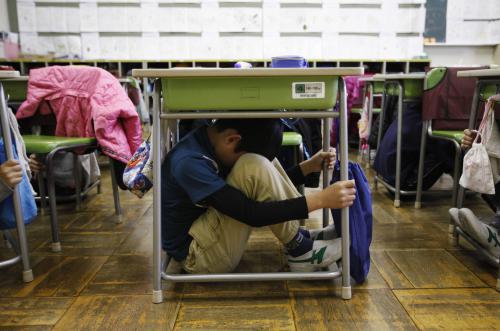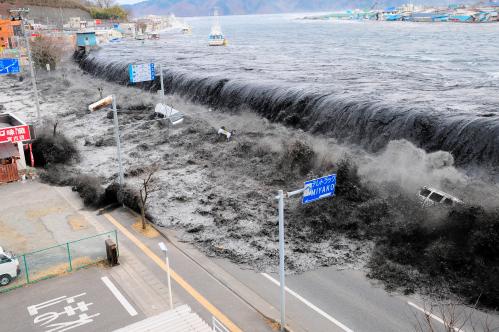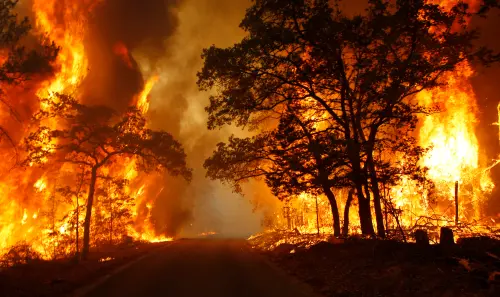Criticism inside Iran’s factional government towards the nuclear negotiations with world powers and President Hassan Rouhani’s pragmatic approach to governing is growing. Will Rouhani’s imprint go the way of Mohammad Khatami, the former leader who tried, but failed, to end Iran’s isolation from the world and liberalize society?
This was the main topic of discussion at a conference at the Stimson Center and Heinrich Boll Foundation of North America, held in Washington DC on March 4th. The purpose of the discussion was to analyze why Iran’s conservative establishment, including Supreme Leader Ali Khamenei, has shifted from either remaining silent or cautiously supporting the nuclear negotiations, to outright criticism. Iran and the countries that comprise the P5 +1 signed an interim “Joint Plan of Action” nuclear agreement in November of 2013, and talks resumed in February of 2014 to work out the details of a permanent or long term deal that would place limits on Iran’s nuclear program.
As recently as March 4th, Ayatollah Mesbah Yazdi, the dean of Iran’s hardline faction, told Deputy foreign minister and current nuclear negotiator, Abbas Araghchi: “Negotiators (the current ones) should use the public’s opposition to the interim (nuclear) agreement as a tool for bargaining. They could also discredit the other negotiators (Western diplomats) because of their comments against our nation. I have some serious criticisms about the cultural policies of Rouhani. It seems they are similar to the Khatami era.”
At the conference on March 4th, Mohammad Tabaar, an assistant professor at the Bush School of Government and Public Service at A&M University, presented a few interesting and plausible explanations as to why Iran’s conservative establishment is openly criticizing Rouhani and asserting their power after months of caution since his election.
According to Tabaar, if Rouhani‘s negotiating team manages to remove some of the most damaging sanctions, they would acquire considerable political capital and gain influence within the governing establishment. As a result, their faction might also win a significant number of seats in the now conservative-dominated parliament, when Iran’s parliamentary elections are held in 2016. In order to prevent these events from happening, the conservatives are aiming to marginalize Rouhani politically.
Mehdi Arabshahi, a former president of Iran’s largest student organization who fled Iran two years ago and now lives in the United States, explained it would be naïve to assume that much of Iran’s political system has changed, simply because Rouhani was elected and the nuclear talks are underway. He used the deteriorating human rights situation in Iran as one example. Since Rouhani’s election, the imprisonment and even executions of political activists have increased – a signal from the intelligence ministry and judiciary that Rouhani’s power is limited. Rouhani had promised when he ran for president that he would improve Iran’s abysmal human rights record by releasing political prisoners and reducing torture and executions. But at least 80 people and perhaps as many as 95 have been executed in Iran already this year, a surge in the use of the death penalty, according to the United Nations.
“The hardliners are sending a message (with the executions) to the public that they are still in power, planning for a future beyond the failure of Rouhani,” said Arabshahi.
The United States’ previous support for Iran’s reformists during the Khatami presidency back-fired and undermined the very people they tried to help, rather than empowering them. As a result, the United States and European Union are exercising caution in what limited and potential options they have in empowering President Rouhani, if in fact they choose to do so.
“The best way to support Rouhani would be to not support him at all, and to look at the state as one monolithic entity. There is a constant theme on the part of the U.S. government where they try to empower the moderates in Iran, and it fails every time,” said Tabaar.
Arabshahi predicted Rouhani’s hands being tied politically regardless if he is empowered internally or externally, and that the opposition to Rouhani will only escalate warning that, “because the conservatives are under the direction of Khamenei, this likely indicates Khamenei is also having a change of heart.”



Commentary
As Nuclear Talks Progress, Rouhani’s Critics Grow Bold
March 6, 2014